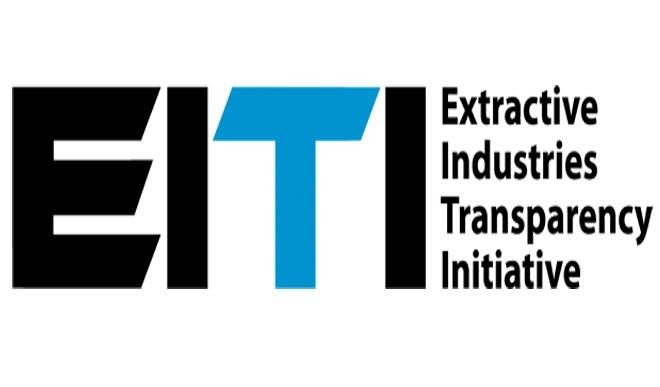The global transparency group, the Extractive Industries Transparency Initiative (EITI) says it would introduce a new validation model for all its 54-implementing member-countries effective April 1, 2021.
The EITI said on its website the new approach would seek to maintain a rigorous approach to validation, while ensuring EITI implementation responded to national priorities.
Validation is EITI’s quality assurance mechanism in implementing countries, to assess their ability to meet the provisions of the EITI Standard, which outlines the requirements applicable to countries implementing the EITI principles as well as the Articles of Association governing the EITI process.
Validation, the EITI said, promotes dialogue and learning at a country level, providing countries with opportunity to communicate progress and to identify and address challenges in EITI implementation.
Also, validation captures stakeholder views and allows countries to highlight their perspectives on the effectiveness and sustainability of EITI implementation.
EITI requirements
The EITI requirements cover contracts and licenses, production, revenue collection, revenue allocation, social and economic spending.
EITI Principles share a belief that the prudent use of natural resource wealth should be an important engine for sustainable economic growth that contributes to sustainable development and poverty reduction, but if not managed properly, can create negative economic and social impacts.
Also, the standard is about the management of natural resource wealth for the benefit of a country’s citizens in the domain of sovereign governments exercised in the interests of their national development.
The standard underlines the importance of transparency by governments and companies in the extractive industries and the need to enhance public financial management and accountability achieved in the context of respect for contracts and laws.
Besides, the standard believes payments’ disclosure in a given country should involve all extractive industry companies operating in that country.
The EITI requirements relate to a transparent legal framework and awarding of extractive industry rights, including legal framework and fiscal regime; contract and license allocations; register of licenses; contracts; beneficial ownership; and state participation in the extractive sector.
The EITI said it acknowledged that countries have different starting points and face diverse challenges in implementing the EITI process in their domains and would use the EITI process to address their most pressing priorities for improving extractives industries governance.
How new approach will work
From April 1, 2021, the EITI said countries undergoing validation would receive a score based on the assessment of three basic components, namely stakeholder engagement, transparency and outcomes and impact.
To achieve validation under the new arrangement, the EITI said the overall score out of 100 represents an average of the scores of each of the three components, with the overall score representing an average of the component scores.
On Assessment of EITI requirements, the EITI said validation would assess the extent to which each EITI requirement is met, using five categories.
The component score is an average of the points awarded to each requirement that falls within the component.
The validation schedule has been revised to allow a transition to the new validation model. The 2021 validation guide provides guidance to the EITI Board and stakeholders on assessing the EITI provisions.
The 2021 validation procedure outlines how validation is carried out.
When preparing for validation, multi-stakeholder groups should use Board-approved templates to provide evidence of progress in the three components of validation. These must be submitted to the EITI International Secretariat by the commencement of validation.
Changes to EITI validation, the EITI said, is to better support relevant, sustainable and impactful EITI implementation.
The new approach maintains the rigour of the validation process, while also accommodating the diverse challenges and priorities of implementing countries.
It supports regular oversight of disclosures by multi-stakeholder groups and seeks to engage stakeholders throughout the process as well as ensure that intended outcomes of EITI implementation are met.
Key Changes
Although the current validation process being revised has provisions for assessing some outcomes and impact of EITI implementation documented, there is no mechanism for rewarding impact.
From April 2021 onwards, impactful EITI implementation would be rewarded according to five indicators that assess effectiveness and sustainability.
On assessment, the current outcome of validation was assessed, but from an overall assessment ranging from “Satisfactory Progress” to “No Progress”.
But from April, the outcome of validation would be a numerical score from zero to 100, with a corresponding indicator ranging from “Low” to “Very high”.
This results in a more nuanced measurement of progress that is easier to communicate to stakeholders.
Timeframe
In the previous arrangement, countries that did not fully implement all EITI requirements by their third validation were suspended, with the maximum period for addressing corrective actions within 18 months.
However, from April 2021, countries are expected to make progress between validations, but will not be sanctioned for not meeting all EITI requirements within a certain timeframe.
The timeframe for addressing corrective actions is more flexible, with a maximum of 24 months.
Role and responsibilities
The EITI international secretariat collates documentation for validation, requesting information from national secretariats and multi-stakeholder groups (MSGs) on an ad hoc basis.
The international secretariat prepares the assessment, with the first validations reviewed by an independent validator.
The international secretariat’s validation team usually includes members of the country team, who also provide implementation support.
From April 2021, the MSG would be responsible for ensuring that necessary data and documentation demonstrating progress is collated and submitted to the international secretariat ahead of validation.
Validation does not involve an independent validator, but the EITI Board may consult external experts. The roles of international secretariat staff undertaking validation and supporting implementation are clearly distinguished.
Stakeholder engagement
The international secretariat consults key stakeholders, but there is no mechanism for public consultation on EITI implementation.
In April, both the assessment of stakeholder engagement and the transparency of validation are strengthened through a public consultation ahead of validation.
Validation will continue to assess the progress made by countries in implementing the 2019 EITI Standard.




